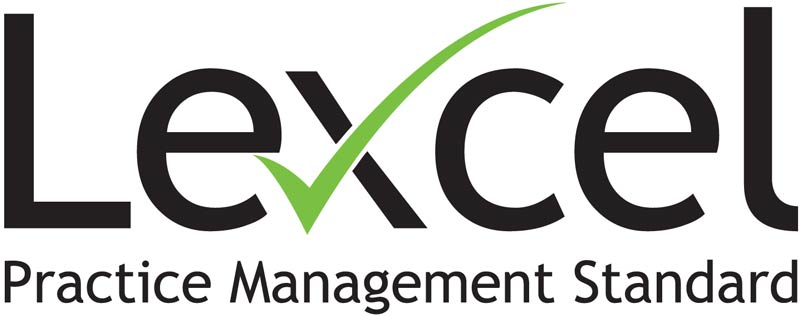Navigating the divorce process can be challenging at the best of times, but when business assets are involved, it can add an additional layer of complexity. In most cases, business assets are included in the matrimonial pot. That means if you or your spouse own a business or have shares in one when you get divorced, those assets will be accounted for in your financial settlement. So, what are the options when it comes to dividing business assets in divorce? In this guide, we’ll explain the different options available to you and how the process works.
Going through a divorce brings with it a great deal of uncertainty and anxiety about the future. Before getting started, it’s important to point out that the court’s objective is to determine the best and fairest settlement for both parties. Whilst you may be concerned that your divorce could result in an outcome that’s detrimental to your business, leaving both you and your spouse financially worse off in the long run, you can rest assured that the court will always try to avoid this. In most cases, the court prefers for the business owner to retain complete control of their company and will try to negotiate a fair settlement that makes this possible. Not only does this allow for a ‘clean break’ upon divorce, but it also protects the business and any other shareholders or employees.
Valuing a business for divorce purposes
There are many different factors that need to be considered when valuing a business for divorce, including its assets, staff, intellectual property, contracts, revenue, liabilities, reputation, and more. With so many variables at play, it’s common for divorcing couples to disagree about the value of their business assets, which can lead to legal disputes. To avoid this, it’s strongly recommended that you jointly instruct an independent specialist accountant to value your business assets. That way, both parties can be sure they are receiving a fair valuation and unbiased advice. For more information on valuing your business for divorce and the process of disputing a valuation, view Money Helper’s guide.
Is it possible to protect my business assets in divorce
Whilst business assets tend to be included in the matrimonial pot, you can take proactive steps to protect your business assets using either a pre-nuptial or post-nuptial agreements. These agreements can be used to set out how business assets should be divided upon divorce. Pre-nuptial and post-nuptial agreements are not legally binding, however, they are becoming increasingly reliable as a means of protecting assets from divorce, as long as they follow strict guidelines. To find out more about pre-nuptial and post-nuptial agreements, as well as other methods of protecting assets from divorce, view our guide: How to protect your assets from divorce UK.
Can my husband or wife take half my business?
Determining how business assets are divided is complex and the court will consider many factors. If your business assets are deemed to be part of the matrimonial pot – and in most cases, they are – your spouse will be entitled to a share. However, that does not necessarily mean they are entitled to a 50% share. If you can demonstrate you have made a special contribution to the business, for example a significant financial contribution or exceptional intellectual or strategic contributions that have led to unprecedented business success, the court may decide an unequal split is fair. Whilst this is possible, you should bear in mind that the bar for special contributions is set high.
One of the best ways to protect your business assets from divorce is pre-nuptial or post-nuptial agreements, but that’s not much help if you are already going through the divorce process. Fortunately, if this is the case, there are still ways that you can retain complete control of your business. As we’ve mentioned already, courts try to avoid any outcome that would be detrimental to a business and prefer business assets to be retained by the owner. Even if your husband or wife is entitled to an equal share of your business, using the offsetting method you can keep complete ownership of your business in exchange for giving up an equivalent share of another asset.

How are business assets divided in divorce?
There are four methods that the court may use to divide business assets upon divorce: outright sale, deferred sale, offsetting, and transfer of shares. Whilst the court’s objective is to deliver the best and fairest outcome, it will also consider the wishes of both parties when determining the most suitable method. Regardless of what method is used, the business will need to be valued.
Outright and Deferred Sale
Although one of the simplest ways to handle business assets upon divorce is to sell them and split the proceeds, more often the offsetting (see below) method is used. The court could however order one party to continue operating the business for a set period before it is sold referred to a deferred sale. This method allows for a clean break financially and is seen as one of the fairest options. The business can be sold during divorce proceedings, referred to as an outright sale, or in some cases, the court can order one party to continue operating the business for a set period before it is sold, referred to as a deferred sale.
Whilst it may result in a fair outcome, if either party wishes to keep their business assets, it may not be suitable.
Offsetting
Offsetting allows one party to keep their business assets in exchange for giving up an equivalent share of another asset in the matrimonial pot, for example property or pension savings. It’s a popular method because it allows the business owners to keep ownership of their business, whilst delivering a clean break financially.
Careful consideration has to be given to the other marital assets that are being used to offset to avoid an unfair outcome. Comparing the value of different types of assets is notoriously difficult and so therefore expert advice is required.
Transfer of Shares
In some cases, the court may order one party to transfer shares to the other, providing them both with a source of income from the business. Transferring shares is quick and easy to do, minimises disruption and can be more cost effective than selling the business, as it avoids the cost of sale and capital gains tax.
However, there are some fairly significant disadvantages to this method. Transferring shares does not deliver a clean break financially, leaving the two parties entangled after the final order is made and divorce proceedings are concluded. If the business is split equally, it can quickly lead to disagreements over how the business is run, which could negatively impact performance and result in further legal disputes. If one party becomes a minority shareholder, it leaves them with limited control over their business assets.
When it comes to handling business assets during a divorce, you need a law firm that understands both business and divorce. At Scott Bailey, we do both. Our expert divorce solicitors and business solicitors have extensive experience supporting clients through this process. Working with our team, you can rest assured that you are receiving the best possible advice for both you and your business. To find out more about how our highly skilled team can help, contact us today.







